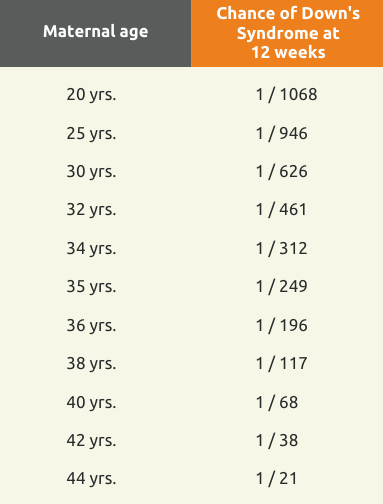Pregnancy is a wonderful time filled with excitement and anticipation of a new addition to the family. The early weeks of pregnancy can be exciting, but anxious too. Like most expectant mothers, you may want reassurance that your baby will be normal and healthy. We at SAAVI Women’s Hospital are as eager as you and your family to ensure that you have a smooth pregnancy.
If you are in your first trimester(between 10 and 14 weeks) or second trimester(between 14 and 22 weeks) of pregnancy and you would like to know your risk of having a baby with trisomy 18 and down syndrome(trisomy 21) or neural tube defect , the following information may be useful for you.
This tests present no risk to your fetus or to yourself. These tests are done routinely at our SAAVI WOMEN’S HOSPITAL
While most babies are born healthy , only 2 or 3 out of 100 newborns may have major birth defects - cause is unknown. This tests make it possible to assess the likelihood of fetus (a baby who is not yet born) having down syndrome (Trisomy-21), Trisomy-18, Trisomy-13 or an open neural tube defect. The 1st trimester screening test is performed to rule out the possibility that you are at increased risk of having a baby with the above diseases.
Down’s Syndrome also known as trisomy- 21, is the most commonly occurring chromosomal abnormality (approximately 1 newborn in 700).This genetic anomaly occurs when the fetus mistakenly receives three copies of chromosome 21 instead of two at the moment of conception

first-trimester-screening
Trisomy 18 or edward’s syndrome and trisomy 13 or patau syndrome are comparatively rare and severe form of chromosomal abnormality associated with severe mental and physical problems with life threatening complications in baby’s first months and years. No treatment is available for trisomy 18or trisomy 13.
Being tested during pregnancy will allow you to be informed about the health of your baby, even before he or she is born. The information you receive will be extremely valuable in helping you plan for your baby’s birth first months and years.
Various methods of prenatal screening are practiced. The screening in the first trimester takes into account your age, special ultrasound test anda blood test.

first-trimester-screening
@ First trimester screening
Combined first trimester screening test involves USG +blood test. Your blood is analysed for 2 markers normally found in all pregnant woman. 1st trimester ultrasound confirms your baby’s age and measures on the thickness of skin fold behind the nape of the nack (Nuchal translucency scan or NT scans).
Comparison of the detection rates (DR)
MA (maternal age) 20
MA + FETAL NT and NB + Doublemarker 11-13 wks 90
MA and USG (fetal NT and Nasal bone (NB)) at 11-13 wks 95
Ref. FMF (UK) *For more information kindly visit fetamedicine.org(uk).
Results of the ultrasound and the blood test are combined to estimate the risk of down syndrome, trisomy-18 and trisomy -13.
@ 2nd trimester screening
If you have missed the opportunity of first trimester screening , you should undergo the second trimester screening. The detection rates for down syndrome are lower than the first trimester screening.( Around 65 - 70%)
Low risk: A low risk reports means your baby is at low risk for down syndrome , trisomy 18 or trisomy 13.
( A low risk does not completely eliminate the possibility your baby may have down syndrome, trisomy-18 or trisomy-13. )
High risk: A high risk report means your baby is at increased risk for down syndrome, trisomy 18 or trisomy-13. When you receive this results one has to consider additional diagnostic testing options like chorionic villus sampling (CVS) or amniocentesis.
These tests confirms the presence of trisomy or a neural tube defect or indicate another chromosomal problem. There is currently no treatment that can be done during pregnancy.
Important:
Remember: